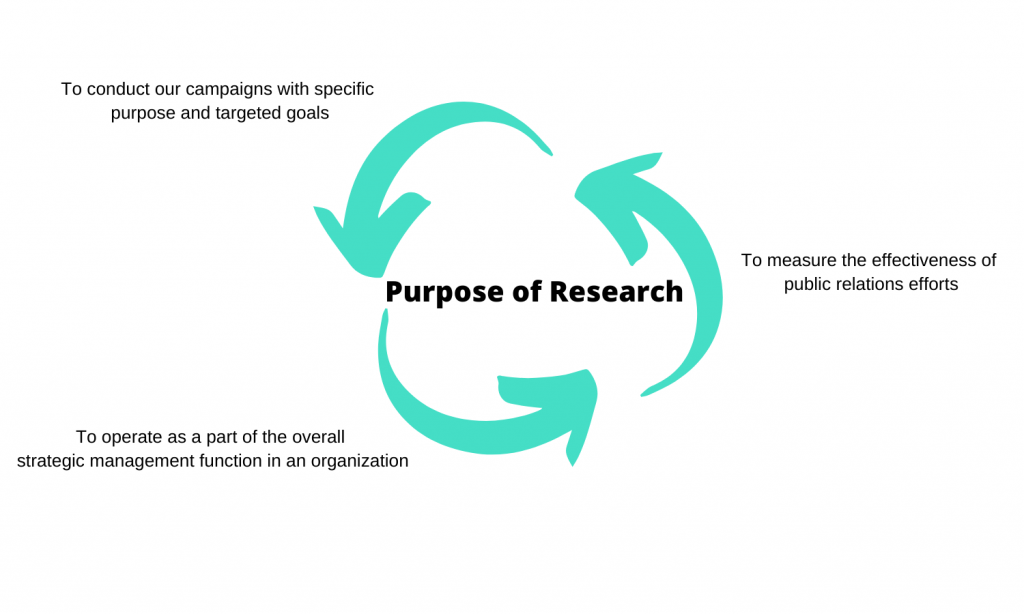24 The Importance of Research in Public Relations
Research is a crucial component of the public relations process. There are several key reasons why research is so important. First, research allows us to develop a PR strategy. For example, in our cookie example, research allows us to develop a strategy for one of our key publics with nostalgia as a main focus. This information will allow us to design specific campaigns with particular targets and goals, to ensure we aren’t wasting time, money, and energy. This helps public relations operate as a strategic function of the organization, contributing to overall organizational goals and objectives.


Another reason why research is so important in public relations is that it can be used to measure the effectiveness of our public relations efforts. For example, we can measure how often our key public is purchasing Scrumpties cookies before our campaign, during our campaign, and after out campaign. This way, we can understand if our campaign has an impact purchasing habits. Was the campaign worthwhile? Was it effective? Research helps us answer these questions and justify the value of public relations within organizations by directing funds to effective strategies.

If we do research before we begin communicating, we can ensure we are capturing the views of our publics. We can identify key publics, develop targeted communications based on what is important to our publics, and build relationships with those publics who may be interested in our messaging. This contributes to two-way communication, instead of outdated methods of disseminating information one way to our publics (Grunig, 1992). Research is what allows us to understand our publics, their needs, and their values, and ensures that we are as effective and strategic as possible in the public relations process.

If we didn’t do research, PR would not be a key strategic function of organizations. Instead, we would be making decisions based on hunches and instinct, and generating publicity without any clear sense of who our publics are and what matters to them. As a central, strategic function of organizations, public relations relies on research to identify issues, problem solve, prevent and manage crises, develop and maintain relationships with publics, and deploy useful strategies and campaigns to support organizational goals and objectives. Being able to understand, conduct, and report on research also allows public relations professionals to demonstrate the value and worth of PR activities and helps ensure PR is part of the organization’s dominant coalition. In short, research matters!
Conclusion
This chapter is a very brief introduction to public relations research. Research is complicated, and you will learn a lot more about research design, methods, and best practices throughout your degree. For now, it is important that you recognize why research is so important in public relations, and that you are aware of its critical function within the public relations process (RACE). You should know the difference between formal and informal research, understand what quantitative and qualitative research means, and be aware of two key research techniques: surveys and focus groups.
Reference
Grunig, J. E. (Ed.). (1992). Excellence in public relations and communication management. Lawrence Erlbaum Associates.
A plan of action or policy designed to achieve a major or overall aim
A goal is something that a person or group is trying to achieve.
An objective is a goal expressed in specific terms.
Any group(s) of people held together by a common interest. They differ from audiences in that they often self-organize and do not have to attune to messages; publics differ from stakeholders in that they do not necessarily have a financial stake tying them to specific goals or consequences of the organization. Targeted audiences, on the other hand, are publics who receive a specifically targeted message that is tailored to their interests.
A process by which two people or groups are able to communicate with each other in a reciprocal way
A process when a person or group sends a message and receives no feedback of any kind from the receiver
RACE formula includes Research, Action planning & Analysis, Communication, Evaluation

